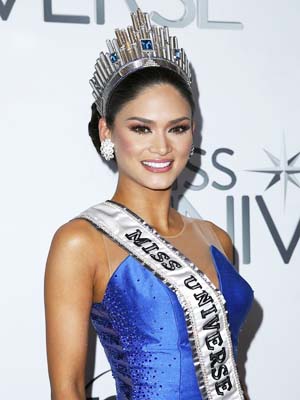Serena Williams, the recent 2024 National Women’s Hall of Fame Inductee, has been a trailblazer for women’s sports, particularly tennis.
Four-time Olympic gold medalist Serena Williams is a phenomenal former tennis player who has changed the game in many ways.
Throughout her career, Williams has won no less than 23 grand slam titles otherwise known as “Serena Slams”. She also had been named AP Female Athlete of the Decade, proving herself an inspiration and role model for aspiring athletes alike. After Williams’s pregnancy, her rank went down to 549 which led to people believing something should be changed about rank numbers falling due to a woman’s inactivity from the sport while she is preoccupied with her pregnancy. Speaking up about this unfair system led the WTA to change the rule so that once women return from childbirth they can enter up to 12 tournaments within 3 years.
Williams has had a difficult life due to facing many injuries, being susceptible to developing blood clots, and even the murder of her sister Yetunde Price in 2003. After being diagnosed with a potentially fatal blood clot in her lungs after her pregnancy, Serena Williams began to spread awareness of the increased risk of pregnancy and postpartum complications for Black women especially.
According to Williams, “In the U.S., Black women are nearly three times more likely to die during or after childbirth than their white counterparts. Many of these deaths are considered by experts to be preventable. Being heard and appropriately treated was the difference between life or death for me; I know those statistics would be different if the medical establishment listened to every Black woman’s experience.”
Serena Williams’s open support and advocacy for the treatment of pregnant women in sports has sparked national conversations on possible reforms in this field like giving more resources to pregnant athletes and not having their rank fall tremendously as a result of their absence.
Despite being an extraordinary athlete, Williams has also shown she is a humanitarian– contributing to and speaking up about causes important to her. In 2011, Serena Williams partnered up with UNICEF as one of their International Goodwill Ambassadors to help push the UNICEF Schools for Africa initiative which would ensure students have a quality education and a wealth of opportunities available to them.
She states, “I want to have an opportunity to help UNICEF make the world aware of challenges that children face.”
In an attempt to support companies made by African Americans and women, Serena Williams has opened her venture capital firm– making the shift from athlete to businesswoman.
Williams says, “Being an entrepreneur is not always easy. My days often begin at the break of dawn and extend well into the night. But in the end, I love reinventing myself in different and authentic ways. Transitioning from a tennis player to a venture capitalist has allowed me to pursue my passion for investing in women.”
She was born in Saginaw, Michigan where she was raised for nine years until she moved to West Palm Beach, Florida. As a child, she was homeschooled however Serena and and her sister Venus Williams did not do their training and practice alone. Both sisters were mentored by their parents as well as attended Rick Macci’s Tennis academy.










